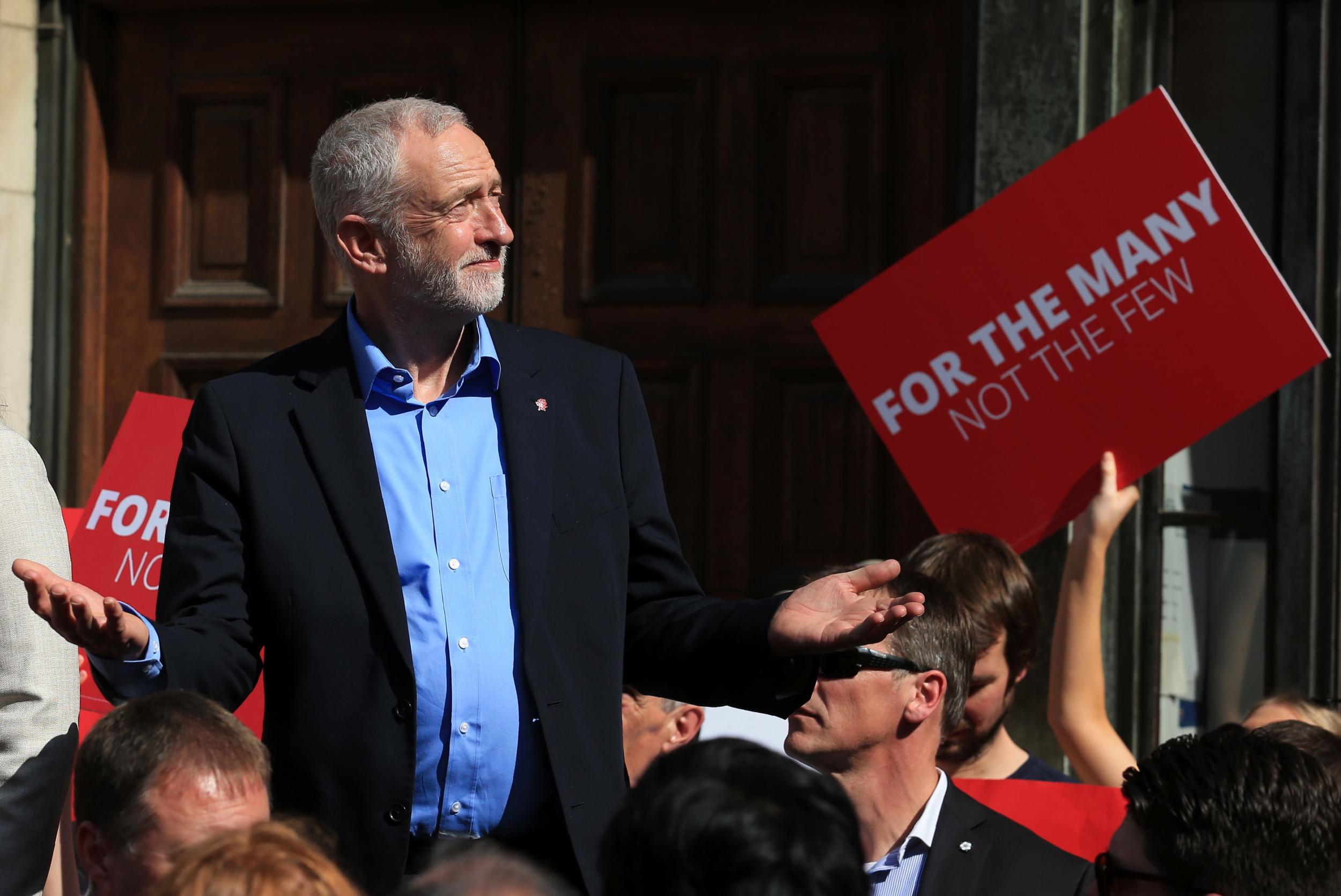Social justice is at the centre of Labour’s draft manifesto
But Jeremy Corbyn’s programme is flawed and its presentation failed to inspire confidence in Labour’s competence

Elections ought to be about policies and substance rather than personalities and process, so let us judge Labour’s leaked draft manifesto on its own terms, and on the assumption that the final document to be published next week will not have been amended much.
There is much in the document that should appeal to many voters. A lot of it is similar to the party’s manifesto last time, but presented with a bit more gusto. The fiscal rules are broadly the same as those presented by Ed Balls as shadow Chancellor in 2015. A Labour government would balance day-to-day spending over a five-year rolling timetable, and would borrow for long-term investment without increasing debt “as a proportion of trend GDP” by the end of a parliament. This is prudent, and does not differ much from what Philip Hammond proposes, now that George Osborne’s foolish attempt to generate a surplus has been abandoned.
The main fiscal difference between Labour and Conservatives is that John McDonnell, the shadow Chancellor, intends to raise income tax on those earning more than £80,000 a year, to yield £6bn a year, and to raise corporation tax, which could yield £19bn a year by the end of the parliament, to pay for a number of expensive spending promises.
Many of those promises are welcome and necessary. No one doubts that the NHS and social care need substantial sums of extra public spending over the next five years. Whatever proposals for fundamental reform of these services there might be – and they are not in Labour’s draft manifesto – the immediate priority is more money.
Building more houses, including accommodation for rough sleepers, is important. But other spending promises, worthy though they might be, are not necessarily the right priority. To spend £4bn on taking the Royal Mail back into public ownership, for example, is not the best use of taxpayers’ money. The promise to abolish tuition fees is attractive, especially if it is accompanied by better provision for the half of young people who do not go to university, but it is hugely expensive and, despite recently widening access to university by students from lower-income families, will tend to benefit the better-off half of the population. Britain’s leaving the EU ought to be the chance to design a graduate tax that would work, because it would not have to treat students from other EU countries the same as UK students.
The Independent is sceptical, too, of Labour’s plans for “nationalising” the rail and energy sectors. Taking rail franchises into public ownership as they expire sounds promising, but public opinion might change if it all it means is a return to a sclerotic state railway. The proposal for the energy sector, to control prices and to set up regional state energy providers to compete with the existing companies, is an ingenious combination of state intervention and competition. But we need more detail before we can judge its merits.
On migration, we welcome the party’s principled defence of the contribution made by immigration to the British economy and its culture. Labour is quite right to say it would drop the damaging target for net annual immigration, and to set out liberal and fair rules for everyone.
But this brings us to the huge change in the political landscape since the last election, which was the British vote to leave the EU. This manifesto is an embarrassing snapshot of a party still struggling to come to terms with that transformative event. The Independent would be sympathetic if Labour sought to reverse Brexit, but the party, having voted for to start the Article 50 process, seems to be trying the BoJo policy of having its cake and eating it. The wording in the manifesto does not appear to rule out the possibility of staying in the EU if an exit deal cannot be agreed, but that is not what the party leadership has said until now.
In summary, the manifesto is not the scary 1970s-era Marxist revolutionary programme as portrayed by Conservative propaganda. It is a flawed attempt to promote social justice. Unfortunately, politics is not just about policy, it is also about personalities and competence. The leak of the draft manifesto makes Labour look disorganised. A party that cannot manage the professional and disciplined launch of an important document will have to work even harder to get the good parts of its policy programme across to the voters.

Join our commenting forum
Join thought-provoking conversations, follow other Independent readers and see their replies